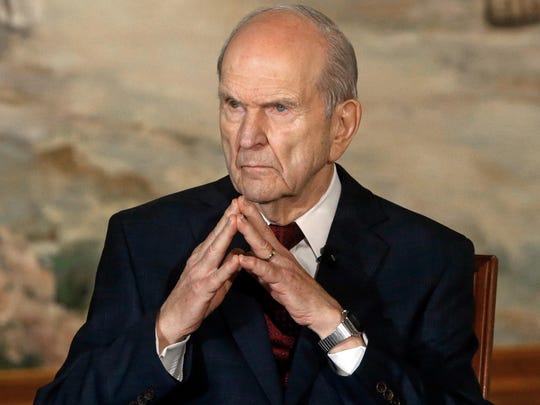I guess you can say racial harmony can always be achieved through foreign funded psyoptics when you are looking at the possibilities of war crimes.
Opinion: Collaboration jangles discord into harmony
 |
| "The NAACP is my new Ride or Die. Are you ready, Swindle? Go tell Mittens we launch the Detroit #coloredrevolution in 3...2....", said Russel Nelson, LDS |
And yet without the influence of Detroit’s NAACP leaders, the event might have restricted participation. No doubt the early organizers had their reasons for seeking a more exclusive march. But the local NAACP leadership didn’t budge. They understood the value of an integrated community voice — if the march wasn’t open to all supporters, they wouldn’t back it.
Eventually, the whole community was invited to the historic gathering along Woodward. Most Americans are familiar with the “I Have a Dream” speech delivered in Washington, D.C. that year, but it was here in Detroit, inside Cobo Hall, where King foreshadowed those immortal words.
Thousands of civil rights supporters will once again descend on Detroit’s Cobo Hall — now Cobo Center — for the 110th NAACP Annual Convention this week.
With its history of facilitating wide participation, as demonstrated during Detroit’s “March to Freedom,” the NAACP has invited for the first time the president of The Church of Jesus Christ of Latter-day Saints, Russell M. Nelson, to speak alongside notable civil rights supporters and organizers. In recent years the NAACP and The Church of Jesus Christ of Latter-day Saints have found significant common cause. And the partnership has become something of a parable in what coaction can accomplish in an era too often marked by division. The relationship started small when local leaders from both groups initiated a modest, but symbolically important, project to restore the historic NAACP field office in Mississippi once occupied by civil rights martyr Medgar Evers.
Eleven days prior to the Detroit march, Evers was shot by a member of the Ku Klux Klan while returning home to his family. During King’s speech at Cobo Hall he paid tribute to Evers, stating that “nothing can be more redemptive” than dying in the cause of freedom.
From this initial partnership, the NAACP and the church have cooperated to pilot free, in-person, multi-week workshops on personal finance. The preliminary results are promising. "I now have tools and resources to better manage my money (and save for family goals)," one participant reported. Another stated candidly: "I feel like I can stop living off of the payday loan people. I thought I would never get out of that trap." Meanwhile, the NAACP has also begun partnering with Brigham Young University’s law school, which is sponsored by the Church, on a community initiative that leverages the school’s large alumni lawyer network to assist people — pro bono — with minor legal issues before the courts.
During Martin Luther King’s 1963 speech in Detroit, he spoke about love as “redemptive goodwill for all men,” and he emphasized Christ’s teachings on the subject.
“History,” King observed, “is cluttered with the wreckage of communities that failed to follow this command.”
By having the president of The Church of Jesus Christ of Latter-day Saints speak in the same city and space where King once marched, the NAACP is demonstrating once again that it stands on the side of collaboration and cooperation. And, at a time when we have too many social divisions and partitions, this emerging partnership between the NAACP and the Church echoes, in some small way, King’s call in Cobo Hall to transform “the jangling discords of our nation into a beautiful symphony of brotherhood.”
Karen Boykin-Towns is the vice chair of the National Association for the Advancement of Colored People (NAACP) Board of Directors. Sharon Eubank is the First Counselor in the Relief Society General Presidency of The Church of Jesus Christ of Latter-day Saints.
I give this group project a B+ for creativity. The picture of Russel was Dr. Evilishly awesome.
Voting is beautiful, be beautiful ~ vote.©
No comments:
Post a Comment